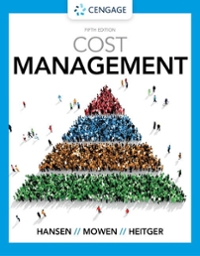Answered step by step
Verified Expert Solution
Question
1 Approved Answer
tip corp. owns stock in Maxey corp. The investment represents a 10 percent interest, and Qtip is unable to exercise significant influence over Maxey. The
tip corp. owns stock in Maxey corp. The investment represents a 10 percent interest, and Qtip is unable to exercise significant influence over Maxey. The Maxey stock was purchased by Qtip on January 1, 2002, for $23,000. The stock consistently pays an annual dividend to Qtip of $2,000. Qtip classifies the stock as available-for-sale. Its fair value at December 31, 2009, was $21,600. This amount was properly reported as an asset in the balance sheet. Due to the development of a new Maxey product line, the market value of Qtips investment rose to $27,000 at December 31, 2010. The Qtip management team is aware of the provisions of SFAS No. 115. The possibility of changing the classification from available for sale to trading is discussed. This change is justified, the managers say, because they intend to sell the security at some point in 2011 so that they can realize the gain. a. Discuss the role that managerial intention plays in the accounting treatment of equity securities that have a readily determinable fair value under SFAS No. 115. b. What income statement effect, if any, would the change in classification have for Qtip? c. Discuss the ethical considerations of this case d. Opponents of SFAS No. 115 contend that allowing a change in classification masks effects of unrealized losses and results in improper matching of market-value changes with accounting periods. Describe how the accounting treatment and the proposed change in classifications would result in this sort of mismatching
Step by Step Solution
There are 3 Steps involved in it
Step: 1

Get Instant Access to Expert-Tailored Solutions
See step-by-step solutions with expert insights and AI powered tools for academic success
Step: 2

Step: 3

Ace Your Homework with AI
Get the answers you need in no time with our AI-driven, step-by-step assistance
Get Started


